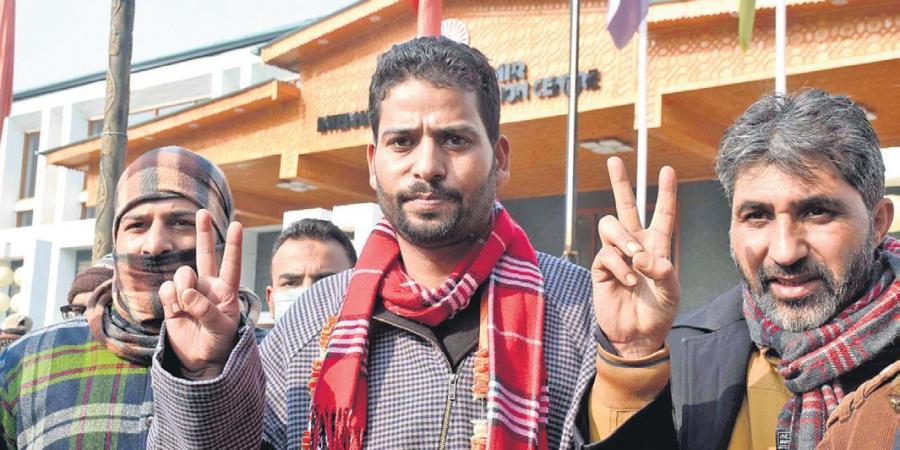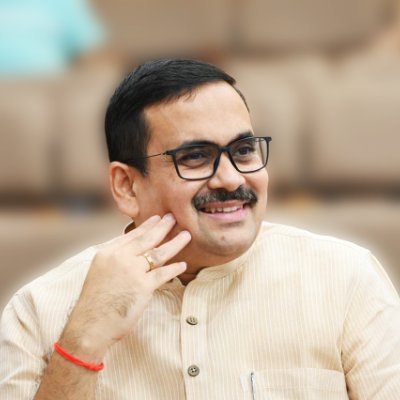While his detractors attempted to retard the process, PM Modi continued to lay the foundations of that new vision and to win the peoples’ confidence and support.
The recently concluded local body elections in Jammu and Kashmir are deeply symbolic of the yearning for change and transformation. The smooth conduct of elections and the overwhelming response to it by the people of the region clearly demonstrated that their long-suppressed democratic urges, their desire to be part of the electoral mainstream and to direct and define their democratic destiny, had found an outlet and channel. The elections also defined the aspiration and urge for change among the people of the region. The results have indicated how people of Jammu and Kashmir are now on an unalterable path of development and transformation.
Development projects, infrastructural initiatives, laying the foundations of a comprehensive and affordable public healthcare structure, addressing long-pending demands and needs—all of these have been systematically attended to. Such a constructive and affirmative approach gave rise to a greater confidence among people. It firmed up their democratic aspirations and commitment, and cemented their faith in the constitutional process and in their own democratic future.
This faith and commitment was translated into votes for PM Modi’s governance approach and his vision of a new Jammu and Kashmir. While his detractors attempted to retard the process, PM Modi continued to lay the foundations of that new vision and to win the peoples’ confidence and support. In his march forward for Jammu and Kashmir, the people are equal partners.
The Gupkar Alliance and the Congress are the biggest losers in the local body polls. The BJP’s emergence as the single largest party, its opening account in the Valley, is in itself a rejection of the politics of separatism and of blackmail. Gupkar politics has come across as dated and putrefying. People of Kashmir do not want to be held hostage by their self-professed leaders anymore; they do not wish to be dictated to or to be controlled for fulfilling a hollow ideological cause, they want greater integration, they aspire to become participants and beneficiaries in the march for a new India, they want to be stakeholders in the reshaping of India’s destiny.
They realise their misutilised potential of the past and want that to be now channelised into ushering a new era for themselves and their state. When Lok Sabha debated for three months the need to abrogate Article 370, through a private members Bill introduced by independent Member of Parliament Prakash Vir Shastri in 1964, Congress member of Parliament from Raiganj in North Bengal, Chapalakanta Bhattacharya, one of the doyens of Bengali journalism, public intellectual and nationalist, lyrically observed, “If I am to speak about Kashmir, I should say, there can be no India without Kashmir and there can be no Kashmir outside India…
Kashmir is integrated in our life, spirit and culture, in everything. There can be no India without Kashmir and there can be no Kashmir outside India—that is my point, the second point is more emphatically stated than the first.” Bhattacharya, also a close associate of Dr Syama Prasad Mookerjee, had in fact spoken here as the philosopher-politician who had identified himself with the deeper symbolism of Kashmir within India. He belonged to that generation of Congressmen who spoke for India, for India’s well-being, for India’s interest.
These types of Congressmen were not tied to a certain family or dynasty, they were wedded to India. Eventually Bhattacharya was forced to leave the Congress. Their legacies erased by their own party, their contributions forgotten and suppressed, the likes of Bhattacharya live on in our aspirations for a new and united India. Their hopes and aspirations for India, in a sense, are being realised through PM Modi’s efforts at rekindling and restating India’s civilisational narrative circumference.
The DDC poll results have, in fact, brought to the surface the spirit of that integration—a Kashmir integrated in our life, spirit and culture. An externally controlled and directed politics of fear and pressure has been completely rejected; the people of Jammu and Kashmir have opted for PM Modi’s transformative ways and approach. They have chosen his vision of relaying India’s foundations. They realise that their future lies along that way.
(The views expressed are the author's own and do not necessarily reflect the position of the organisation)


